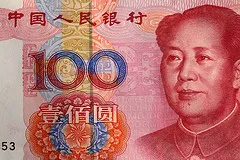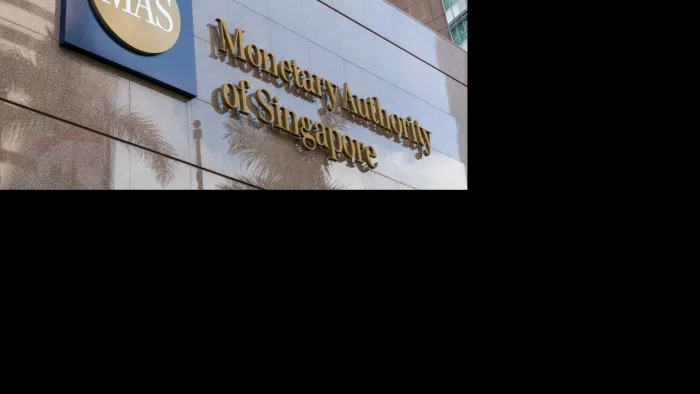
RMB not significantly overvalued: IMF
It’s official, Obama can back off as the IMF says China is not significantly manipulating its currency.
A stronger RMB would be an important component in rebalancing the economy toward domestic demand, according to an IMF report.
The report, as cited in HSBC’s release, also said that RMB appreciation "would need to be supported by wide-ranging reforms."
Here’s more from HSBC:
| Inflation remains the key concern for China's policymakers. Hence they will continue on the path of appreciation, with upcoming political pressures also likely to quicken the near-term pace of appreciation. The IMF's latest report may add to this pressure, however, we believe authorities will stick to their own objectives when it comes to FX policy. The IMF released its annual "Article IV" report on China, with a particular focus on the newswires regarding the valuation of the RMB. The headlines were, however, not completely one-sided. On the one hand, the IMF also noted that RMB appreciation "would need to be supported by wide-ranging reforms". However, on the flip side, they also stated that "a stronger RMB would be an important component in rebalancing the economy toward domestic demand". We stick by the view that the RMB will continue appreciating while inflation remains a concern, and that short-term political pressures will also have an impact on the pace of appreciation, but that a substantial large move is unlikely, as the RMB is no longer significantly undervalued. On specific valuation, the report cited current estimates that the RMB is undervalued by either 3%, 17% and 23% (see the full article for details of methodology). This in itself highlights the ambiguity of how difficult it is to provide a precise valuation for the RMB, or any currency for that matter. In the past, we have found that the case for RMB undervaluation is far from conclusive. Perhaps the most transparent and least debatable expression of currency valuation is the current account. This we have highlighted in the past, has come down sharply since its peak of 10.8% of GDP in 2007 - undeniably indicative of substantial imbalance - to 4.2% last year, which was much more in line with average global current account balances. The divergence between the IMF's expectations of the current account to re-widen, and HSBC forecasts that it continues to narrow (Chart 1), highlight the different views in degree of fundamental undervaluation. The data, thus, is likely to ultimately decide the valuation debate. We doubt that China will alter its current policy of allowing appreciation at the pace it sees suitable. As we noted yesterday (see "Political calendar perks up RMB appreciation") the last time the RMB moved as independently from the broad USD as it is now, was back in 2008, when inflation concerns were also acute. With inflation running at over 6% at present, we think RMB appreciation will continue to be used as an inflation fighting policy tool. In the shorter term, the pace of that appreciation may also pick up pace given the political calendar. With some senior US politicians visiting China in coming weeks, and the US Treasury's semi annual report on currencies due in October, it seems likely the USD-CNY fixing will come under greater downward pressure. Indeed, the last two fixings have seen the USD-CNY rate drop 148 pips. The previous 148 pip drop had taken over a month. |
Photo credit: wmliu



![SBR 5 Lorem Ipsum News 2 [8 May]](https://cmg-qa.s3.ap-southeast-1.amazonaws.com/s3fs-public/styles/exclusive_featured_article/public/2025-05/a_hand_pointing_to_a_futuristic_technology_5b87c9d0e3_3.png.webp?itok=M3Hf-9XR)
![SBR 4 Lorem Ipsum [8 May Top Stories]](https://cmg-qa.s3.ap-southeast-1.amazonaws.com/s3fs-public/styles/exclusive_featured_article/public/2025-05/a_hand_pointing_to_a_futuristic_technology_5b87c9d0e3_2.png.webp?itok=2m5Wl0MX)


![Exclusive three SBR 12 Lorem Ipsum [8 May]](https://cmg-qa.s3.ap-southeast-1.amazonaws.com/s3fs-public/styles/exclusive_featured_article/public/2025-05/a_hand_pointing_to_a_futuristic_technology_5b87c9d0e3_11.png.webp?itok=8kn_UIfA)
![SBR 3 Lorem Ipsum [ Exclusive 2]](https://cmg-qa.s3.ap-southeast-1.amazonaws.com/s3fs-public/styles/exclusive_featured_article/public/2025-05/a_hand_pointing_to_a_futuristic_technology_5b87c9d0e3_1.png.webp?itok=YCyjLegJ)
![SBR 2 Lorem Ipsum [8 May]](https://cmg-qa.s3.ap-southeast-1.amazonaws.com/s3fs-public/styles/exclusive_featured_article/public/2025-05/a_hand_pointing_to_a_futuristic_technology_5b87c9d0e3_0.png.webp?itok=_cKD-29o)

![Video [Event News]](https://cmg-qa.s3.ap-southeast-1.amazonaws.com/s3fs-public/styles/event_news_featured_article/public/2025-05/screenshot-2025-05-08-at-4.58.53-pm_0.png.webp?itok=Kud35sMs)
![Event News SBR 9 Lorem Ipsum [8 may]](https://cmg-qa.s3.ap-southeast-1.amazonaws.com/s3fs-public/styles/event_news_thumbnail/public/2025-05/a_hand_pointing_to_a_futuristic_technology_5b87c9d0e3_8.png.webp?itok=DTh_dbYp)
![Event News SBR 9 Lorem Ipsum [8 May]](https://cmg-qa.s3.ap-southeast-1.amazonaws.com/s3fs-public/styles/event_news_thumbnail/public/2025-05/a_hand_pointing_to_a_futuristic_technology_5b87c9d0e3_7.png.webp?itok=vzDAzb6V)
![Event News SBR 8 Lorem Ipsum [8 May]](https://cmg-qa.s3.ap-southeast-1.amazonaws.com/s3fs-public/styles/event_news_thumbnail/public/2025-05/a_hand_pointing_to_a_futuristic_technology_5b87c9d0e3_6.png.webp?itok=jvHFc4P6)
![Video [Event News]](https://cmg-qa.s3.ap-southeast-1.amazonaws.com/s3fs-public/styles/video_thumbnail/public/2025-05/screenshot-2025-05-08-at-4.58.53-pm_0.png.webp?itok=yZnI0YBb)
![Video 1 SBR [8 May]](https://cmg-qa.s3.ap-southeast-1.amazonaws.com/s3fs-public/styles/video_thumbnail/public/2025-05/screenshot-2025-05-08-at-4.58.53-pm.png.webp?itok=9AAeRz_k)

 Advertise
Advertise

